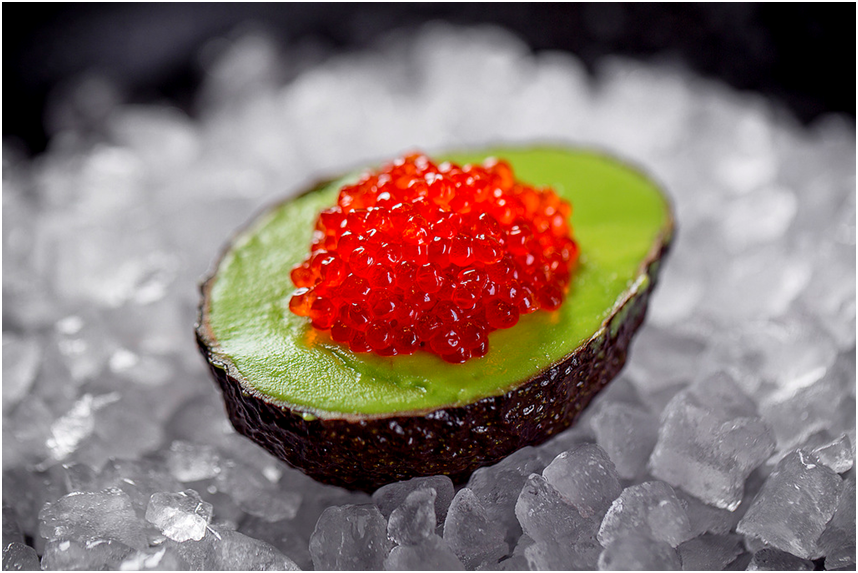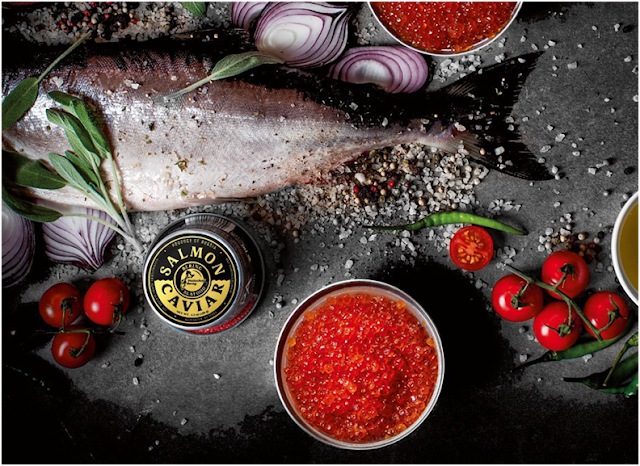Salmon as a Means of Preventing Heart and Vascular Disease
Cardiologists do not get tired of repeating: fish will
help keep the heart in working condition for many years. As a source of animal
proteins, it is much better than beef, pork, and even poultry. It is high in
heart-healthy unsaturated fats, while animal meats are high in saturated fats,
which raise blood cholesterol levels. In the journal Food and Chemical
Toxicology, a study was published that proved that replacing red meat with fish
allows you to live longer and healthier. Eating fish reduces the risk of
developing heart defects.
But the fish is different: one benefits the heart, the other can harm. The basis of the "cardiovascular" diet is salmon. It contains many beneficial fatty acids that fight free radicals that destroy our cells. Omega-3 and Omega-6 polyunsaturated acids are not produced in the human body, and we can get them only through other products, namely fish.
For the first time, experts paid attention to omega-3
polyunsaturated fatty acids in the 1970s, when they noticed that the
inhabitants of Greenland and Japan suffer from heart disease much less
frequently. It has been hypothesized that this is due to dietary habits: these
countries traditionally consumed much marine fish. Thus began the study of the
omega-3 polyunsaturated fatty acids found in fish oils. The research results turned
out to be fantastic: Omega-3 improves the vascular wall condition, lowers blood
pressure, regulates the level of lipids in the blood, and has an anti-sclerotic
effect.
Tested the new data in Greece on at-risk patients -
smokers, who most often suffer heart attacks and strokes. Within a month, the
study participants took 120 grams of salmon daily, which carried out a thorough
diagnosis of their heart and blood vessels. It turned out that in all
participants of the experiment, the vascular wall became more elastic, which
proved the effect of polyunsaturated fatty acids on the improvement of the
vascular walls.
Can pills replace natural Omega-3s found in fish? This was verified by another study being conducted, this time in Korea. Local scientists concluded that dietary supplements do not positively affect the cardiovascular system of patients who have had heart attacks and strokes in the past. Supplementation did nothing to reduce cardiac death rates among the patients in the study. The American Heart Association recommends eating 120 grams of fish at least twice a week for prevention purposes. And for people who have suffered heart attacks in the past, increase the number of servings to four per week. In farm-raised fish, the percentage of omega-3 is significantly lower than in the "wild" fish caught in the sea. Therefore, "cores" should pay attention to wild, natural salmon.
The world refuge of this fish is the Kamchatka Peninsula. A fifth of all wild Pacific salmon spawns here, which is valued for its delicate taste and the full content of nutrients and vitamins. The region is the world's largest fresh, frozen salmon and caviar exporter. The nature of Kamchatka contributes to this: abundant rains, absence of permafrost, and extensive water basins. Due to the peninsula's isolation from mainland rivers, there are practically no other freshwater fish here. The Pacific salmon lives and breeds here without any problems - it simply has no rivals.
On the other side of the Pacific Ocean, wild salmon
stocks are practically destroyed in Alaska. The construction of dams, land
reclamation, intensive fishing, and environmental degradation have reduced the
population. And programs for restoring wild populations of Pacific salmon in
the United States and Canada have shown relatively modest results. The Alaska
fishing industry is forced to disrupt fishing technology and catch fish before
entering freshwater to spawn to meet the population's need for healthy fish and
caviar. This affects the quality of the product: the content of valuable
substances in salmon is much lower, and the caviar is not fully ripe.
Kamchatka salmon breeds in the fresh waters of
ecologically clean rivers and, for fattening, go to the ocean, where it is fed
with useful microelements in saltwater. For spawning, he returns to his native
waters, when he becomes an object of fishing for local fish processing
companies. The largest enterprise in the Kamchatka region is the Vostochny
Bereg company. In the high season - the spawning period - its production shops
process almost 500 tons of products per day. In the high-tech complex, located
on the Eastern coast of the Kamchatka Peninsula, they carefully monitor that
the Far Eastern frozen fish production of all types of cuts and red caviar is
carried out by all sanitary and epidemiological standards and does not harm the
environment. The production of Vostochny Bereg / Bering Seafood is based on the
principle of a short cycle - within four hours after being caught, Pacific
salmon is processed and turned into a finished product. Such a fast production
provides fish and salmon caviar with excellent appearance, taste, and, most
importantly, the complete safety of all nutrients. "Vostochny Bereg"
/Bering Seafood has an international MSC certificate and has repeatedly become
a prize-winner at international exhibitions. The fish processing complex
carefully controls the quality of raw materials and finished products, does not
allow "dirty" processing, and excludes dyes, and flavors, making
Kamchatka fish and salmon roe kosher food. It is no coincidence that Vostochny
Bereg / Bering Seafood products are in demand in the United States, where 8
million Jews who keep kashrut live.
The production cycle at the plant is seasonal. During
spawning, all production capacities are involved here. Straightforward and
well-coordinated work allows us to provide stocks of natural and high-quality
Far Eastern frozen fish of all types of cuts for the whole calendar year.
Thanks to large production volumes and an established distribution system,
fresh, high-quality, and healthy marine products from Kamchatka are now
available to residents of 12 countries worldwide.





Comments
Post a Comment